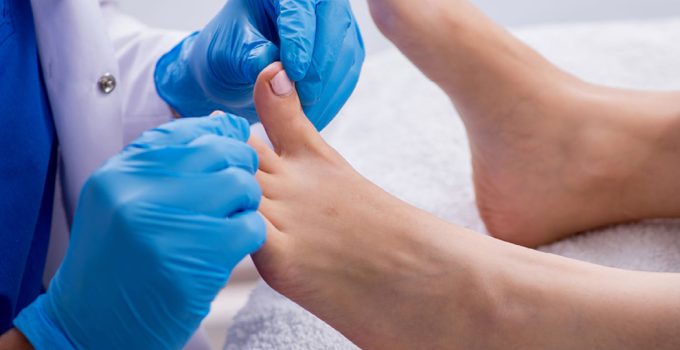People with diabetes are more likely to develop sores on their feet, heels and toes. These sores are known as diabetic ulcers and can cause amputation.
Heather Jankowski, Diabetic foot ulcers Care Centre, stated that it is important for diabetics to perform a daily foot exam. This will allow you to catch any problems early on and have them treated immediately. Your risk of losing your leg is greatly reduced if you get treatment early.
What is a diabetic foot ulcer exactly?
This is a wound that can occur on the feet, heels, or toes in people with diabetes. Often, the ulcers are not felt or feel at all. There is a pulse and the skin feels normal to warm. The skin on the feet and legs may appear dry and flaky.
Nerve damage puts you at higher risk for foot ulcers
Diabetic neuropathy can cause a loss of sensation in your feet. You may not be able to notice a cut or blister. These seemingly minor problems can lead to serious foot infections and ulcers. An infection that doesn’t improve with treatment may require the amputation of your foot, toes, or leg to stop it from spreading. Diabetes is the most common cause of limb loss.
What can I do to prevent nerve damage from getting worse?
- As much as possible, keep your blood sugar within your target range.
- Avoid smoking, as it can reduce blood flow to your feet.
- Consume more fruits and vegetables, and less sugar and salt.
- Do 10-20 minutes of exercise each day.
- Follow the instructions of your doctor.
How can diabetic foot ulcers be prevented?
Diabetes can be prevented by most people. Preventive measures include regular care at home, and all doctor’s visits.
- Every day, check your feet for redness, swelling and any changes to the skin or nails. If you are unable to see your feet, use a mirror or ask someone in the family.
- You should never go barefoot indoors. This will prevent you from getting hurt.
- Shoes that fit well are important.
- Every health visit should include a foot exam. If you have nerve damage, visit your foot doctor at least once a year. Your foot doctor will examine your feet for any abnormalities in sensation or blood flow.
What can I do if my foot is swollen?
Seek medical attention. A wound care centre may be referred for you. Your care team will create a treatment plan that will help you heal.
Optimum Wound Care (OWC) is a comprehensive wound care centre that provides exceptional wound-healing services to patients. Their team of experienced wound care specialists utilizes advanced wound care techniques and technologies to treat various types of wounds, including diabetic wounds, pressure ulcers, venous ulcers, and more. The centre also offers personalized care plans and education to help patients better understand their conditions and prevent future wounds. With a patient-centred approach, state-of-the-art facilities, and a commitment to providing the highest level of care, Optimum Wound Care is a top choice for those seeking effective wound-healing solutions.



